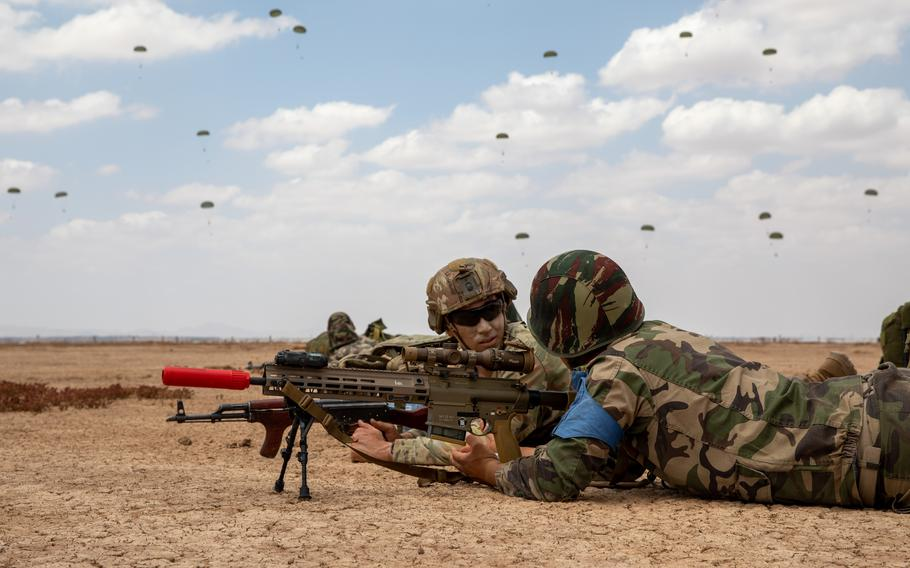The U.S. Army is wrapping up its capstone series of exercises this week in Africa, where troops have fanned out for drills involving numerous partner nations grappling with expanding insurgencies at home.
African Lion 23, which concludes Friday, has involved 17 countries and more than 8,000 troops, who have been training across northern and western Africa for more than a month.
The effort comes as terrorist-attack numbers soar in places like the Sahel, which has emerged as a global epicenter for terror.
“Our partners are very concerned about the security situation,” said Col. Matthew Kopp, director of the U.S. Army Southern European Task Force, Africa’s security cooperation directorate.
Kopp said during his conversations with African counterparts at the exercise, there has been a sense of urgency when it comes to dealing with a threat that has proliferated in recent years.
“They are investing a significant amount of time and treasure into this (counterterrorism fight),” Kopp said of the U.S.’s western Africa partners.
African Lion, U.S. Africa Command’s largest exercise on the continent, has operated out of training camps in northern and western Africa, with Morocco as a primary host. Participating countries from western Africa such as Chad, Niger and Nigeria have been at the forefront of the fight against various militant groups, ranging from Islamic State and al-Qaida affiliates to the Nigerian homegrown group Boko Haram.
The Army said the tactics worked on during African Lion are designed to help militaries deal with any number of potential threats, from countering insurgencies to dealing with environmental disasters.
During the exercise, the U.S. brought significant firepower with it. The Vicenza, Italy-based 173rd Airborne Brigade, reconnaissance Marines, and major weapons like High Mobility Artillery Rocket Systems, Abrams tanks, F-16 fighters and B-52 bombers all factored into events.
The Sahel, which includes countries across Africa’s vast Sahara region, accounted for 43% of global terrorism deaths in 2022, according to the Global Terrorism Index. That situation raises thorny questions for the U.S., including whether large-scale training initiatives like African Lion — and smaller ongoing training efforts happening year-round — are making a difference.
Analysts are debating the U.S. approach. Despite two decades of counterterrorism efforts, terrorist groups have expanded in Africa, attacks have increased and some of the militaries the U.S. has partnered with have been involved in coups.
“This recent spike of extremist violence in the region is in line with longer-term trends, as terrorism rates increased more than 2,000 percent in the Sahel over the past 15 years,” regional expert Alexander Noyes wrote in a recent analysis for the Hoover Institution think tank.
Some critics say the U.S. hasn’t found the right balance between lending military support and finding ways to improve the quality of fragile governments that are vulnerable to the kind of insurgencies that have taken root in the Sahel.
Noyes said the United States should shift its security policy away from the delivery of tactical weapons and toward a “governance-first” policy focused more on institution building and strengthening civilian control of the region’s militaries.
“Despite some recent first steps in the right direction, the U.S. model of military assistance in the Sahel often continues to default to tactical-level training and equipping of unprofessional and often predatory security forces, which frequently makes things worse,” Noyes said.
Kopp, however, says institution building, human rights priorities and a focus on matters such as civilian control of armed forces already are embedded into the training the Army carries out in Africa.
“As we are training with our partners, we bring our values to the table. So, it’s not just our professional military, it is our values,” Kopp said. “We integrate rule of law and human rights into everything we do.”

